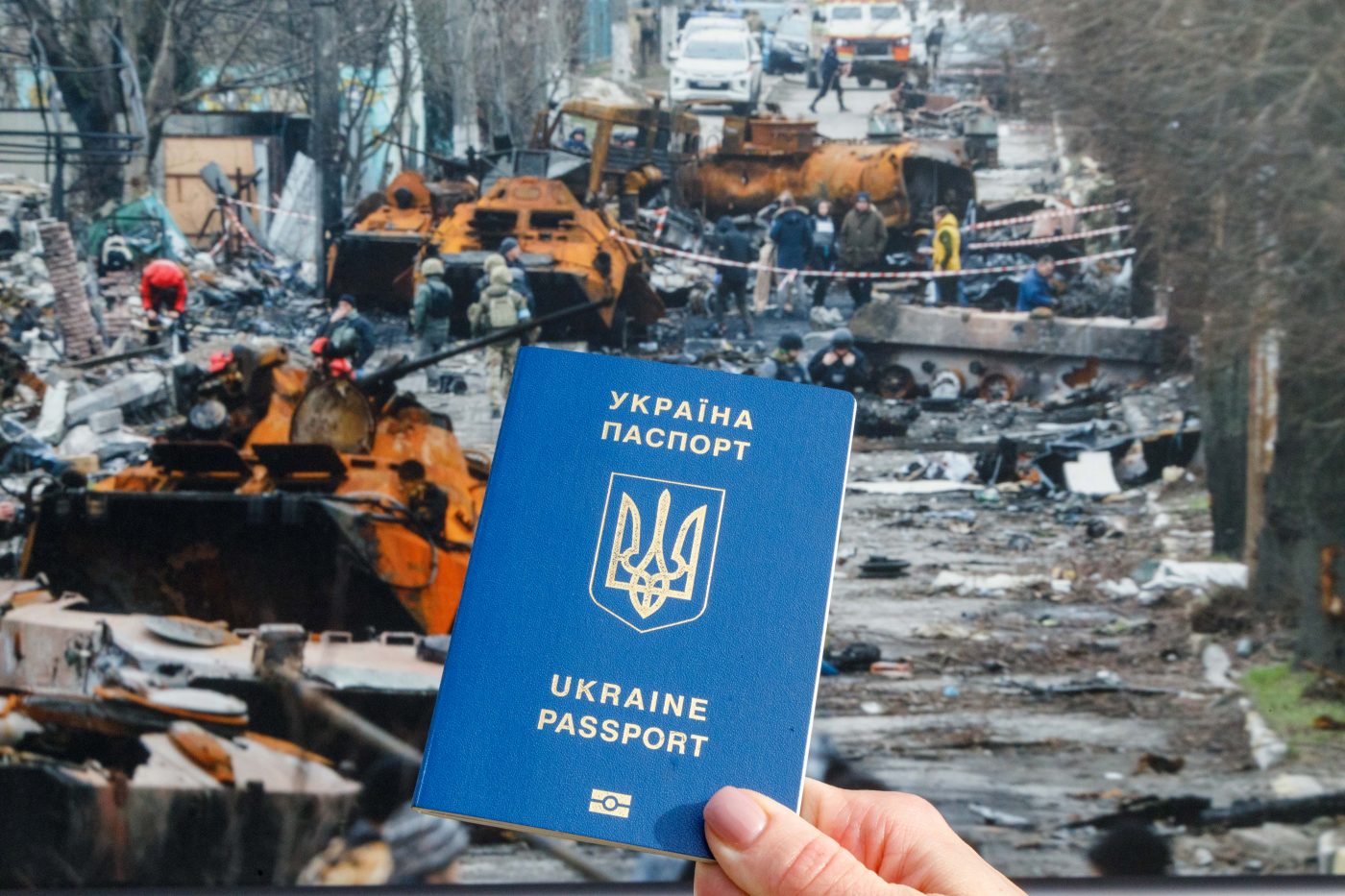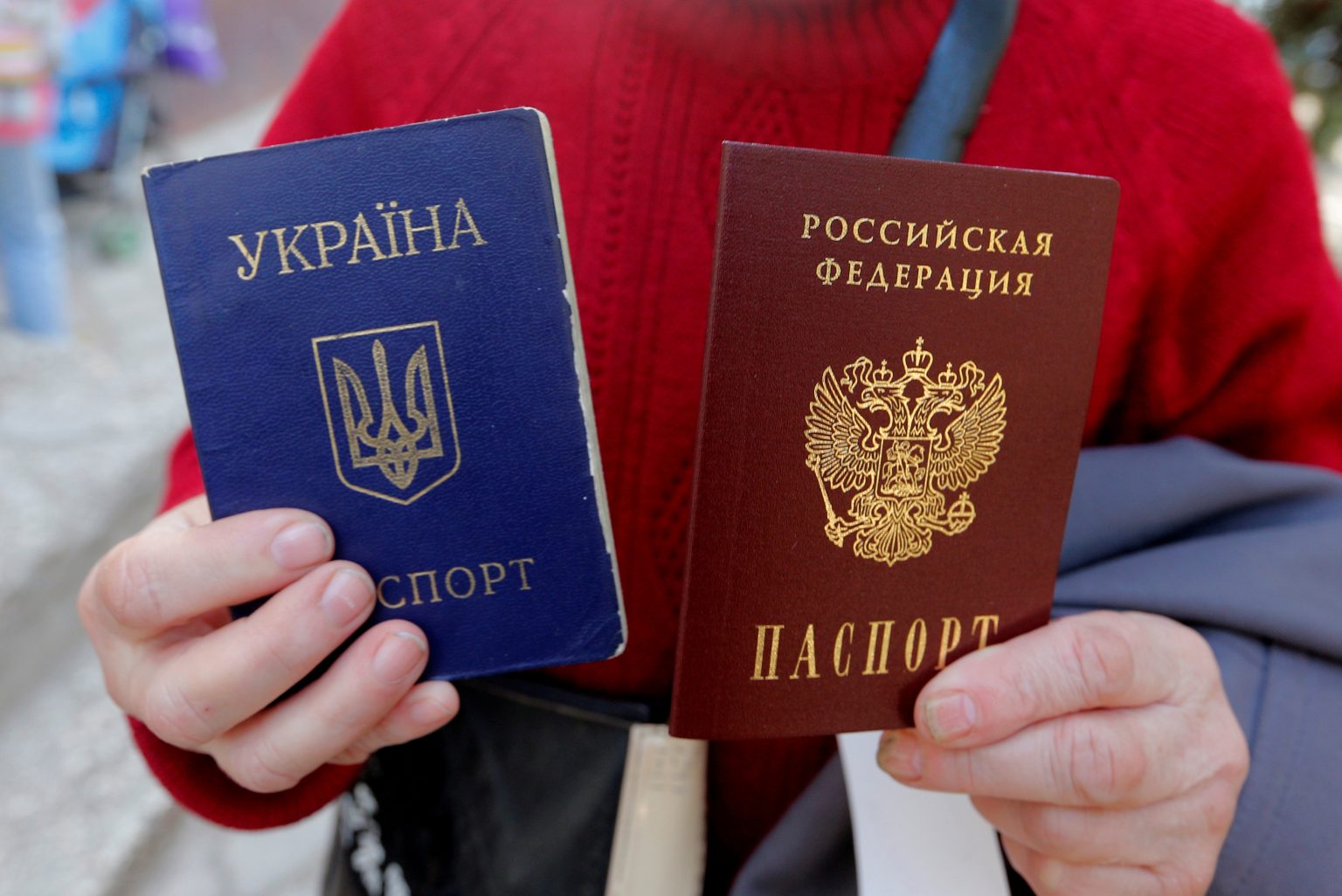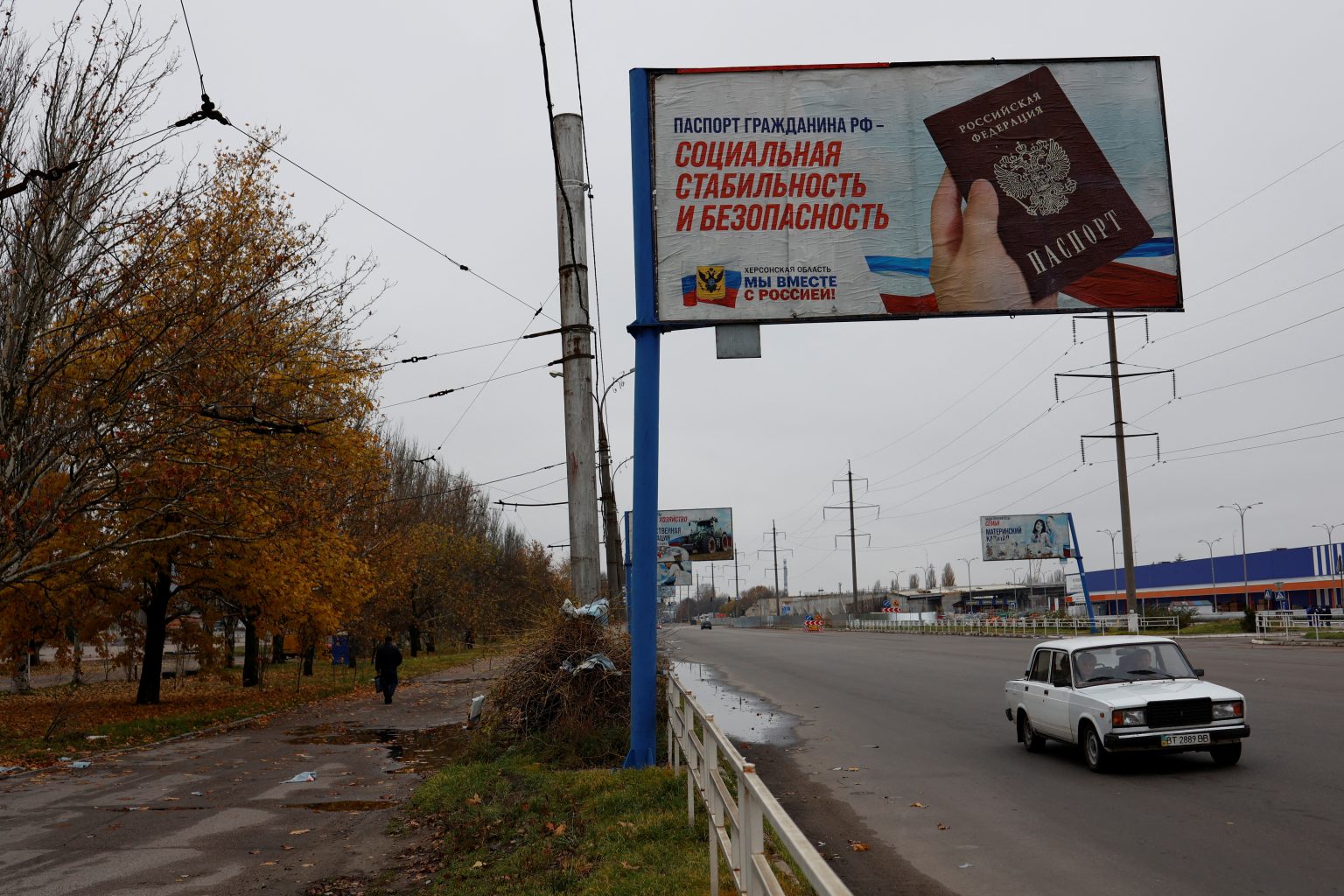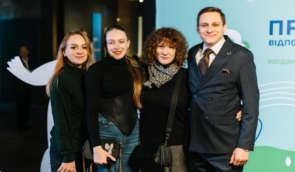Behind the lines: Russia makes Ukrainians foreigners in their own country
Vladimir Putin has given Ukrainians until September to become Russian citizens or leave the occupied territories in his latest attempt to erase their identity.

The Russian president signed a decree requiring citizens who do not have “legal grounds to stay on the territory of the Russian Federation” — including illegally seized parts of Ukraine — to either voluntarily leave by September 10 or “settle their legal status in the Russian Federation.”
Moscow has spent years pressuring Ukrainians in occupied areas to take its passports. After annexing Crimea in 2014, it declared all residents were Russian citizens. In occupied Donetsk and Luhansk, it began issuing documents from its self-proclaimed republics in 2015. Then in 2019, Russia launched a fast-track program — with passports issued in just 10 days.
By July 2022, this program was extended to all Ukrainians, at first lured with incentives — benefits, no language exams, fast paperwork — then threatened with punishment, including limits to healthcare, education, property rights, and travel. Since January, Russia has limited stays by “foreigners” to 90 days a year — and applied the rule to Ukrainians, born and living in the occupied territories, who have not taken Russian passports.

“Psychologically, it’s hard for Ukrainians to apply for foreigner status,” said Alena Lunova, Advocacy Director at the ZMINA Human Rights Centre. “This is their home, yet they’re being forced to ask the occupier for permission to stay and are labeled as foreigners.”
The new decree, signed by Putin in March, specifically targets Ukrainians, giving them six months to “legalize” their status. It also says “foreigners,” or people without citizenship, who are in occupied Donetsk, Luhansk, Zaporizhzhia or Kherson regions for more than 90 days or for work, must complete a medical exam by June 10 and submit documents to the Ministry of Internal Affairs confirming they have no infectious diseases and do not use drugs.
“Russia’s migration policy has become much tougher, and it’s clear that Ukrainians without Russian passports are now automatically classified as foreigners,” Lunova said. “This decree targets those who neither took a Russian passport nor obtained foreign resident status.”
Russian human rights defenders say it violates international law.
“Previously, Ukrainians could stay in Russia indefinitely. Now they must get a residence permit, take a Russian passport, or leave — including those in the occupied territories,” said Grigory Vaypan, a senior lawyer at Memorial, Russia’s oldest human rights group. “This is a clear violation of international law. Fingerprinting and medical exams apply to all foreign residents in Russia, but for Ukrainians in occupied areas, it’s an unlawful tool of control and intimidation.”
There’s no exact figure for how many passports Russia has issued in the occupied territories, but in February 2024, two years after the full-scale invasion, Russian officials claimed to have distributed more than two million.
“Since the start of the occupation, the self-proclaimed Luhansk and Donetsk People’s Republics have issued their own passports. Later, residents — including those newly occupied — exchanged them for Russian ones through the same process,” said Petro Andriushchenko, head of Ukraine’s Center for the Study of the Occupation.
The Russian claim over the number of passports it has issued is “realistic,” Andriushchenko said, though many Ukrainians have continued to resist.
“My godfather’s parents still haven’t taken one,” said Oleksandr, who has family in the occupied Kherson region and asked to be quoted using a false name. “But more people are giving in, applying for passports, pensions, staying silent.”
Olena, now in Poland, said her family, also in the Kherson region, complied under pressure. “They were told `no Russian passport, no property,’ so they gave in,” she said.
And the threat is real. “People without passports have had land shares seized and re-registered. Those who left had their apartments taken, especially in Nova Kakhovka,” said Yurii Sobolevskii, deputy head of Kherson Oblast Council. “We’re talking about dozens of properties in every settlement.”
Putin’s September deadline for all Ukrainians to comply might be to align with Moscow’s possible summer offensive, Andriushchenko said.
“There’s no specific reason for choosing September 10, but Putin is preparing a major offensive, likely in the Zaporizhzhia region and parts of the Donetsk region,” he said. “It’s planned as a summer campaign, and expected to end by fall. They hope to gain more territory and [russify more] people by then.”
Meanwhile, Moscow is resettling loyal Russians to occupied areas.

“The standard of living in occupied parts of the Zaporizhzhia and Donetsk regions is higher than in many Russian regions, sparking mass relocation of military families, teachers, and others,” said Askad Ashurbekov, the deputy of Zaporizhzhia Oblast Council. “It’s forced assimilation, these newcomers impose their way of life, eroding local identity and diluting the ethnic Ukrainian presence. It’s a calculated move to break community ties and prevent Ukrainians from uniting or resisting.”
Ukrainians in the occupied territories who don’t comply risk imprisonment. And those without Russian passports or legal status could end up in temporary holding centers for foreign nationals across Russia.
“These are essentially migration prisons. And since Russia doesn’t deport Ukrainians back to Ukraine, these individuals will be left there,” said Lunova. “They risk detention in facilities with appalling conditions, where, importantly, no medical care is provided at all.”
Ukraine has called on international partners to condemn Russia’s decree as a clear violation of international law and to impose tougher sanctions, including on individuals. They have also asked the International Criminal Court to treat the decree as evidence of war crimes.
Elina Beketova is a Non-resident Fellow with the Democratic Resilience program at the Center for European Policy Analysis (CEPA). She is the author of Behind the Lines, a database and article series focused on Ukraine’s temporarily occupied territories. Elina began her career as a journalist in Crimea and later worked as a journalist, editor, and TV anchor for news stations in Kharkiv and Kyiv.
Europe’s Edge is CEPA’s online journal covering critical topics on the foreign policy docket across Europe and North America. All opinions expressed on Europe’s Edge are those of the author alone and may not represent those of the institutions they represent or the Center for European Policy Analysis. CEPA maintains a strict intellectual independence policy across all its projects and publications.
Source: CEPA
If you have found a spelling error, please, notify us by selecting that text and pressing Ctrl+Enter.















